Search Results
Showing results 1 to 19 of 19
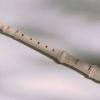
Engineered Music
Source Institutions
In this activity, learners explore how musical instruments are engineered.
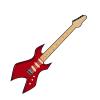
Energetic Musical Instruments
Source Institutions
Learners design and create musical instruments from common objects; their challenge is to create an instrument that can make three different tones.
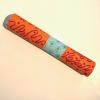
Let's Make Music
Source Institutions
In this activity, learners will create their own percussion instrument with recycled materials. Learners will explore design, fabrication, cause and effect and sound through this activity.
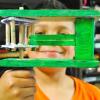
Matraca
Source Institutions
In this activity, learners create a traditional Mexican noisemaker (a matraca) using cardboard, craft sticks, and a wooden dowel.
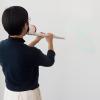
Vocal Visualizer
Source Institutions
With a bit of PVC, a laser, a can/cup, and a small mirror, you can make a device that visualizes you voice or any sound transmitted into the cup/can.
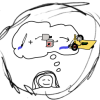
Pico Cricket (Tiny Computer) Activity Ideas
Source Institutions
This is a web page that helps informal educators brainstorm on how to use a Pico Cricket (tiny computer) in an informal activity.
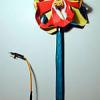
Wandering Wands
Source Institutions
In this activity, learners construct wands that play different notes depending on information from light sensors programmed via a PICO Cricket.
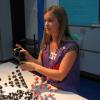
The Electric Squeeze
Source Institutions
In this activity/demo about piezoelectricity, learners discover how some crystals produce electricity when squeezed.
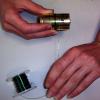
Yogurt Cup Speakers
Source Institutions
Learners build a simple electromagnet, then use this electromagnet to transform a yogurt container into a working speaker. They can connect their speaker to a radio and listen as it transmits sound.
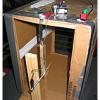
Clap Sensor: Build a Sound Sensor Using a Pico Cricket
Source Institutions
This activity requires a Pico Cricket (tiny computer). Learners work on designing and building a sound sensor out of household materials, like plastic wrap and cardboard.
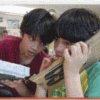
Build a Band
Source Institutions
In this design challenge activity, learners build a four-stringed instrument that can play a tune.

Sound Representation: Modems Unplugged
Source Institutions
In this activity, learners listen to songs and decode hidden messages based on the same principle as a modem. As a final challenge, learners decode the binary messages in a music video.

Soggy Science, Shaken Beans
Source Institutions
Learners explore soybeans, soak them in water to remove their coat, and then split them open to look inside. They also make a musical shaker out of paper cups, a cardboard tube, and soybeans.

Coffee-Can Cuíca
Source Institutions
Make a cuíca (“kwee-ka”), a traditional Brazilian musical instrument that originated in Africa. Played primarily in Brazil, now you can play it at home, too, with this Exploratorium produced activity.

Straw Oboe: Two lips make sound
Source Institutions
Oboes's unique sound originates from the two small reeds a musician blows into. Make your own double reed instrument out of straw!
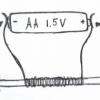
Make a Speaker
Source Institutions
In this activity, learners explore how an electromagnet works by making a simple one. Using this knowledge, learners design a diagram to make a working speaker using household materials.
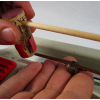
How to Make an Audio Tape Bow
Source Institutions
From this How To slide show, you create an Audio Tape Bow that can play distorted audio sounds by running it across a tape head.
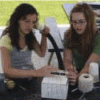
Headphone Helper
Source Institutions
In this design challenge activity, learners add headphones to a previously built instrument (see "Build a Band" activity) to make it easier to hear.
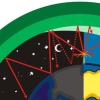
AM in the PM
Source Institutions
In this activity, learners will listen to as many radio stations as possible to discover that AM radio signals can travel many hundreds of miles at night.
